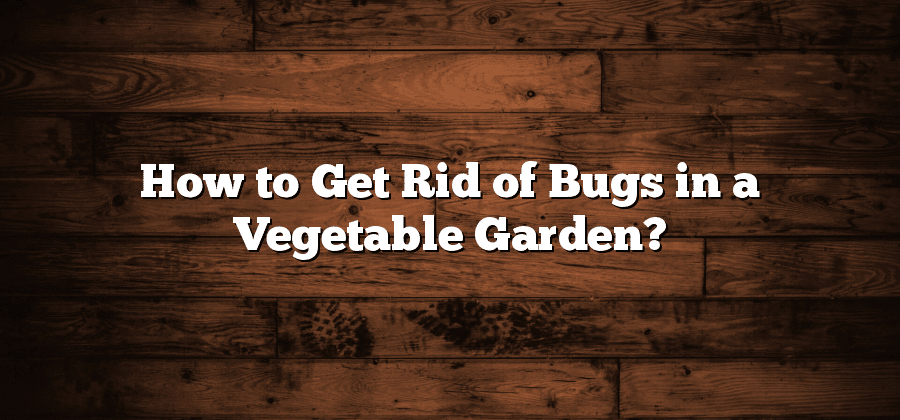Identifying Common Garden Pests
Garden pests can wreak havoc on your plants and cause significant damage if left unchecked. Identifying them early is crucial in order to implement the appropriate pest control methods. One common garden pest is the aphid. These tiny insects have soft bodies and come in a variety of colors. They often cluster on the undersides of leaves, where they feed on the plant sap. If you notice curled or yellowing leaves, sticky residue, or distorted growth, chances are aphids have made themselves at home in your garden.
Another pesky garden pest to watch out for is the tomato hornworm. These caterpillars are large, reaching up to four inches in length, and can blend in well with the foliage. They have a voracious appetite for tomato, pepper, and eggplant plants, as well as some other members of the nightshade family. Look for the telltale signs of hornworm infestation, such as chewed leaves, black droppings, and stripped stems. If your tomato plants are suddenly being defoliated, it’s time to inspect for these camouflaged pests.
Being able to identify common garden pests is the first step in successfully protecting your plants. By knowing what signs to look for, you can implement the appropriate pest control methods to keep your garden thriving.
Natural Pest Control Methods
One effective natural pest control method is using companion planting. This technique involves growing certain plants together that have a symbiotic relationship with each other. For example, planting marigolds around your tomato plants can help repel pests like aphids and nematodes, as marigolds release a scent that is unappealing to these insects. Similarly, planting basil near your cabbage plants can deter cabbage worms. By strategically selecting companion plants, you can reduce the need for chemical pesticides and create a more balanced and resilient ecosystem in your garden.
Another natural pest control method is introducing beneficial insects to your garden. Ladybugs, lacewings, and praying mantises are known as voracious predators of common garden pests. These insects can be purchased from a reputable supplier and released in your garden. Another way to attract beneficial insects is by creating habitats for them. Installing birdhouses and pollinator hotels in your garden can encourage the presence of insect-eating birds and solitary bees, which can help control pest populations naturally. Providing a diverse range of plants that offer nectar and pollen will also attract beneficial insects to your garden.
Attracting Beneficial Insects
One of the most effective ways to manage pests in your garden is by attracting beneficial insects. These insects are natural predators that feed on common garden pests, helping to control their populations without the need for chemical interventions. By creating a welcoming environment for these beneficial insects, you can encourage them to stay in your garden and keep pest populations in check.
To attract beneficial insects, consider planting a variety of flowers and herbs that provide them with nectar, pollen, and shelter. These plants not only attract beneficial insects like ladybugs, lacewings, and parasitic wasps, but they also add beauty to your garden. Additionally, avoid using broad-spectrum pesticides as they can harm both harmful and beneficial insects. Instead, practice Integrated Pest Management (IPM) techniques and rely on natural methods of pest control. By attracting beneficial insects, you can create a balanced ecosystem in your garden and reduce the need for harsh pesticides.
Creating Physical Barriers
Physical barriers can be an effective and environmentally friendly method for keeping common garden pests at bay. By physically blocking access to your plants, you can prevent infestations and minimize damage, all without the use of harmful chemicals. One popular option is the use of nets or screens. These can be draped over or around your plants to create a barrier that insects and other pests cannot penetrate. Make sure to choose a mesh size that is small enough to keep out even the tiniest insects, but still allows for proper air circulation and sunlight.
Another type of physical barrier that can be effective is a fence or enclosure. This method is particularly useful for larger pests such as rabbits or deer. By constructing a sturdy fence around your garden, you can prevent these animals from entering and feasting on your precious plants. Be sure to bury the fence at least a foot into the ground to deter burrowing and make sure it is tall enough to prevent jumping over. It’s important to regularly inspect your barriers for any damage or gaps that pests may be able to exploit. By maintaining and reinforcing your physical barriers, you can ensure their effectiveness in protecting your garden.
Using Organic Pesticides
Organic pesticides have gained popularity among gardeners and homeowners who prioritize environmentally friendly solutions. These pesticides are derived from natural sources, such as plants, minerals, and oils, and can effectively control common garden pests without the use of synthetic chemicals. One advantage of using organic pesticides is their minimal impact on the environment. Unlike conventional pesticides, which can persist in the soil and waterways, organic pesticides break down more quickly and pose less risk to beneficial insects, wildlife, and the overall ecosystem. Additionally, organic pesticides are generally less toxic to humans, reducing the potential health hazards associated with exposure to harmful chemicals.
Another benefit of using organic pesticides is their ability to target specific pests while minimizing harm to beneficial insects. By selectively targeting pests, organic pesticides help maintain a balanced ecosystem in the garden. Beneficial insects, such as ladybugs and lacewings, play a crucial role in controlling pest populations naturally. They are nature’s own pest control agents, feeding on harmful insects and maintaining a natural balance in the garden. By using organic pesticides, gardeners can protect these beneficial insects and ensure their presence for long-term pest management.






